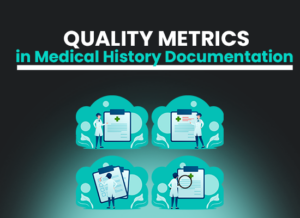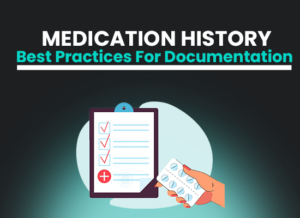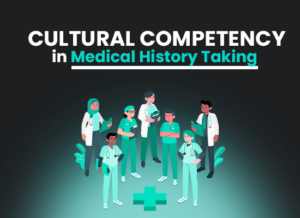Healthcare Compliance: Essential Regulations and Best Practices
- November 21, 2024

Table of Contents
Healthcare compliance is the backbone of the healthcare industry, ensuring that organizations meet legal and ethical standards to protect both patients and providers. From protecting patient privacy to preventing fraud and ensuring accurate billing, compliance covers a wide range of regulations.
Professionals like compliance specialists and attorneys play a crucial role in navigating this complex world, helping healthcare organizations avoid legal pitfalls and maintain high standards of care.
Compliance in Healthcare: An Overview
Understanding the Importance of Compliance in Healthcare:
- Protection of Patient Rights: Compliance ensures that healthcare organizations respect and protect the rights of patients, such as confidentiality and informed consent.
- Legal and Financial Consequences: Non-compliance can result in heavy fines, lawsuits, and loss of licensure, impacting the financial stability of healthcare providers.
Key Principles of Healthcare Compliance
There are several principles that form the foundation of compliance programs. These principles guide organizations in ensuring that they meet legal and ethical standards while delivering quality care. Compliance programs help in minimizing the risk of fraud, abuse, and negligence, which can have serious consequences for both healthcare providers and patients.
In a 2024 Navex Global Survey, 50% of risk and compliance professionals rated their programs as mature, while the other half fell in the bottom three maturity tiers.
- Integrity: Ensuring that all actions taken by healthcare professionals and organizations are honest and transparent.
- Accountability: Healthcare providers must be accountable for their actions, ensuring they follow rules and regulations at all times.
- Patient-Centered Care: Compliance is also about ensuring that all care decisions prioritize the well-being and safety of patients.
- Ongoing Monitoring: Healthcare organizations must continually assess and improve their compliance efforts through audits and evaluations.
Try it - Love it - Buy it
Avail Our Free Trial Now!

Healthcare Regulatory Compliance:
What is Healthcare Regulatory Compliance?
Healthcare regulatory compliance refers to the process of adhering to the various laws, rules, and standards that govern healthcare practices. These regulations are designed to ensure that healthcare providers offer safe, ethical, and legal care to patients.
The estimated global cost of financial crime compliance across financial institutions is $213.9 billion.
Healthcare organizations must keep up to date with these regulations and adapt their practices accordingly.
- Patient Privacy Laws: Regulations like HIPAA (Health Insurance Portability and Accountability Act) ensure that patient information is kept confidential and secure.
- Billing and Payment: Healthcare organizations must follow strict guidelines to avoid fraudulent billing and improper reimbursement.

Key Healthcare Regulatory Standards and Guidelines:
Healthcare providers must adhere to a variety of regulatory standards to ensure they meet the required level of care. These standards are often set by government agencies or professional organizations and are regularly updated to reflect changes in medical practices, technology, and patient needs.
- HIPAA: This law ensures that patient information remains confidential and that healthcare providers safeguard data against unauthorized access.
- FDA Regulations: The U.S. Food and Drug Administration (FDA) establishes guidelines for the approval and monitoring of medical devices, drugs, and treatments.
- OSHA: The Occupational Safety and Health Administration (OSHA) enforces workplace safety standards in healthcare settings, protecting both staff and patients.
| Regulation | Impact |
|---|---|
| HIPAA | Protects patient data privacy and security. |
| Affordable Care Act | Ensures essential coverage and patient care standards. |
| False Claims Act | Prevents fraudulent billing and reimbursement practices. |
| Anti-Kickback Statute | Prohibits bribery and kickbacks in healthcare. |
| Medicare and Medicaid Laws | Ensures compliance with government insurance programs. |
| OSHA | Enforces workplace safety standards in healthcare settings. |
Healthcare Compliance Laws and Their Implications:
Compliance with healthcare laws is crucial for the smooth operation of healthcare organizations. Failure to comply with these laws can lead to serious consequences, including fines, criminal charges, and loss of accreditation. The compliance laws are designed to prevent fraud, ensure patient safety, and maintain the integrity of the healthcare system.
In 2022, healthcare organizations allocated an average of 3% of their annual budget to compliance activities.
- False Claims Act: This law helps prevent fraud in healthcare billing, where healthcare providers may face penalties if they submit false or misleading claims for payment.
- Medicare and Medicaid Laws: Healthcare providers must comply with the rules governing these government programs to avoid penalties and ensure fair reimbursement.
For example, a healthcare organization that fails to maintain HIPAA standards could face significant fines and legal action if patient data is exposed. Similarly, if a healthcare provider submits fraudulent billing claims to Medicare, they could be investigated and penalized under the False Claims Act.
Addressing Healthcare Compliance Issues:
Healthcare compliance is essential for ensuring that healthcare providers follow the rules, protect patients, and maintain the quality of care. However, various challenges can arise, leading to potential compliance issues that need to be addressed.
A 2023 survey indicated that 60% of healthcare organizations increased their cybersecurity budgets to address compliance and security challenges.
Some common compliance issues include:
- Inadequate training: Without proper training, healthcare workers may not fully understand compliance regulations or how to apply them in daily tasks.
- Poor documentation: Healthcare providers may fail to document important patient information or treatment processes, which can lead to violations of privacy laws or incorrect billing practices.
To address these issues, healthcare organizations must focus on specific actions and strategies. It’s important to:
- Education programs: Regular training on compliance standards ensures that all staff members are up to date with the latest laws and regulations.
- Proper documentation: Electronic health record (EHR) systems can help ensure that patient data is accurately documented and stored securely.
For example, a hospital that implements monthly training on patient privacy laws ensures that nurses and doctors are always aware of the best practices for maintaining patient confidentiality.
| Compliance Issue | Solution |
|---|---|
| Inadequate Staff Training | Implement regular training sessions on privacy, billing, and regulations. |
| Poor Documentation | Use Electronic Health Records (EHR) systems for accurate and secure documentation. |
| Unauthorized Data Access | Use role-based access control and secure authentication systems. |
| Fraudulent Billing | Regularly audit billing practices and use compliance software to detect fraud. |
| Data Breaches | Encrypt sensitive data and implement strong cybersecurity measures. |
Healthcare HIPAA compliance:
The Health Insurance Portability and Accountability Act (HIPAA) is a foundational regulation designed to protect patient privacy and the security of sensitive health information in the healthcare industry. Compliance with HIPAA is essential for healthcare providers, ensuring that patients’ personal and medical information remains secure and confidential. Healthcare organizations that fail to comply with HIPAA face serious consequences, including legal penalties, financial fines, and damage to their reputation.
As of 2023, 92% of healthcare organizations have adopted data encryption to protect patient information.
Given the increasing reliance on digital health records and technologies like AI medical chatbots, maintaining HIPAA compliance has become even more crucial to protect sensitive patient data.
- Patient Privacy: HIPAA requires healthcare organizations to keep patient information confidential and restrict access to those with proper authorization.
- Penalties: Violations of HIPAA can result in significant fines, lawsuits, and public trust issues, which can severely affect an organization’s credibility and financial stability.
Best Practices for HIPAA Compliance in the Digital Age:
To ensure compliance and protect patient data under HIPAA, healthcare organizations need to adopt strict practices and technologies. These measures not only safeguard patient privacy but also help reduce the risk of breaches and unauthorized access.
In 2022, 50% of healthcare organizations experienced data breaches involving mobile devices
- Encrypting Patient Data: Encryption is critical for ensuring that patient data remains secure, even in the event of a data breach. With the rise of AI medical history tools, which store vast amounts of personal and health data, encryption becomes even more important to prevent unauthorized access to sensitive information.
- Restricting Access: Healthcare organizations should ensure that only authorized personnel can access patient records. This can be managed through role-based access control systems and secure authentication methods.
For example, if a doctor mistakenly sends a patient’s confidential information to the wrong recipient via email, the healthcare facility could face hefty fines. However, by implementing secure email encryption systems and using AI-driven solutions like an AI medical chatbot for consultations, the chances of accidental data exposure can be minimized, helping ensure HIPAA compliance.
By adopting these best practices, healthcare organizations can protect sensitive patient data while complying with HIPAA regulations, minimizing the risk of penalties, and enhancing patient trust. As healthcare technologies evolve, maintaining HIPAA compliance will continue to be a key factor in ensuring the privacy and security of patient information, especially with the increasing use of AI and digital tools.
The Role of Patient Access Representatives:
Patient access representatives play a crucial role in the healthcare system by helping patients through the necessary administrative tasks that ensure they receive the care they need. They are typically the first people patients interact with when entering a healthcare facility, whether it’s a hospital, clinic, or doctor’s office.
These professionals are responsible for registering patients, verifying their insurance details, scheduling appointments, and assisting with any questions or concerns patients may have about their care.
Patient Access Representatives are usually hired in various healthcare settings, including hospitals, clinics, medical offices, and urgent care centers.
Healthcare IT Compliance:
IT plays a key role in supporting healthcare compliance by helping organizations manage and secure patient data. Healthcare IT compliance ensures that all systems used to store, transmit, or access patient information meet required standards for privacy and security.
Security leaders understand that shifting from awareness to behavior change will reduce cybersecurity risks. By 2027, 50% of large enterprise CISOs will adopt human-centric security practices to reduce friction and enhance control adoption.
The role of IT in compliance is varied:
- Protecting data: IT systems must protect patient information from unauthorized access, breaches, and cyberattacks.
- Maintaining data integrity: Ensuring that patient records are accurate, updated, and complete is essential for patient care and compliance.
Healthcare IT compliance also involves adopting and maintaining certain standards. These include:
- Adhering to standards: Healthcare providers must follow guidelines such as HIPAA, HITECH, and other relevant regulations for IT practices.
- Audits and monitoring: Continuous monitoring of IT systems helps identify vulnerabilities and ensures compliance with security regulations.
For example, a hospital that conducts quarterly IT audits and regularly updates its security software can prevent potential data breaches, ensuring patient information stays safe and complies with regulatory standards.
The Role of Healthcare Compliance Specialist:
A Healthcare Compliance Specialist is a key professional in the healthcare sector who ensures that healthcare organizations comply with laws, regulations, and internal policies. Their main job is to make sure that practices meet legal and ethical standards in areas like patient privacy, billing practices, and healthcare data security. They may work for hospitals, insurance companies, or government agencies, overseeing compliance programs and educating staff on rules and regulations.
In 2022, 60% of healthcare organizations reported challenges in ensuring third-party vendors comply with healthcare regulations.
For example, a compliance specialist may review medical billing procedures to ensure that services are being billed correctly under government and private insurance guidelines. In the growing field of healthcare technology, they may also oversee compliance for enterprise AI solutions that manage patient data, ensuring these tools are used in accordance with privacy laws and regulatory requirements.
What Does a Healthcare Compliance Specialist Do?
Healthcare compliance specialists play a crucial role in ensuring that healthcare organizations meet regulatory standards and legal requirements. They help monitor adherence to critical regulations like HIPAA, OSHA, and the Affordable Care Act. These professionals are responsible for conducting audits to identify areas of non-compliance, creating reports for management, and providing necessary training to staff. Their work ensures that organizations avoid legal pitfalls, protect patient privacy, and maintain ethical practices across operations.
- Regulations: Ensure compliance with regulations like HIPAA and OSHA.
- Audits: Regularly check processes, such as billing and patient privacy, to identify issues
- Reports: Summarize findings from audits and assessments, highlighting compliance gaps.
- Training: Educate staff on compliance regulations and best practices through workshops or online training.
Skills and Expertise Required for Healthcare Compliance Specialists:
Healthcare compliance specialists need a mix of technical and interpersonal skills. They must have a strong understanding of healthcare laws and regulations, as well as the ability to analyze data and identify risks. Excellent communication skills are essential, as specialists need to educate staff and management on complex legal topics.
- Strong Knowledge of Laws and Regulations: Understand HIPAA, OSHA, and other healthcare regulations.
- Analytical Skills: Review audit results and identify compliance issues.
- Communication Skills: Effectively train and communicate compliance requirements to staff.
- Attention to Detail: Ensure accuracy in reviewing medical records, billing, and other documentation.
Career Path and Opportunities in Healthcare Compliance:
A career as a healthcare compliance specialist can offer growth and advancement within the healthcare sector. Many start in entry-level positions, such as compliance analyst or auditor, where they gain experience conducting audits and monitoring regulations.
19% of risk and compliance professionals reported adopting new automation and technology solutions to cut costs.
With more experience, specialists can move into higher roles like compliance manager or director, overseeing compliance programs and leading teams. Continuing education and certifications, such as the Certified in Healthcare Compliance (CHC), can open up further career opportunities in leadership or consulting roles.
- Starting Roles: Begin as a compliance analyst or auditor, supporting audits and compliance assessments.
- Advanced Positions: Progress to compliance manager or director, managing broader compliance efforts.
- Certifications for Career Growth: Obtain certifications like CHC to enhance qualifications and increase job prospects.
- Broader Career Horizons: Move into consulting, risk management, or healthcare policy development roles.
Healthcare Compliance Attorney: Ensuring Legal Adherence
A Healthcare Compliance Attorney plays an essential role in ensuring that healthcare organizations follow legal and regulatory guidelines. They provide legal advice and representation for healthcare providers, helping them understand and comply with complex healthcare laws. The attorneys often handle issues related to patient privacy and data security laws, fraud prevention, and managing violations of healthcare regulations.
23% of security and IT professionals identified staying aware of and interpreting new regulations as the top compliance challenge.
For example, if a healthcare organization faces a lawsuit for violating patient privacy under HIPAA, a healthcare compliance attorney would represent them and help mitigate the legal consequences.
The Role of a Healthcare Regulatory Compliance Attorney:
- They advise healthcare organizations on legal matters related to healthcare regulations, such as HIPAA and Medicare rules, ensuring compliance with both privacy and security requirements.
- They help ensure that organizations understand and comply with federal and state healthcare laws, addressing both regulatory and legal challenges related to patient information security and privacy.
Key Legal Considerations for Healthcare Providers:
- Privacy Laws, such as HIPAA, which protect patient information and ensure it is handled securely, addressing both privacy and data security concerns.
- Fraud and Abuse Laws, including the False Claims Act, which ensure that healthcare providers do not engage in fraudulent billing or services, protecting the integrity of healthcare financial transactions.
- The Anti-Kickback Statute, which prohibits healthcare providers from offering or receiving kickbacks for referrals or services, maintaining ethical standards in healthcare services and transactions.
Healthcare Compliance Examples:
Real-world examples of healthcare compliance demonstrate the importance of adhering to regulations in the industry. Healthcare organizations often develop and implement comprehensive compliance programs to prevent violations. For instance, a hospital might conduct regular staff training on patient confidentiality to ensure that sensitive patient data is protected under HIPAA.
The average cost of a healthcare data breach in 2023 was $10.1 million, the highest among all industries
This proactive approach helps prevent costly breaches and legal issues. A successful example is a hospital that received recognition for its effective HIPAA training program, reducing patient privacy complaints and safeguarding data.
Real-World Examples of Healthcare Compliance Successes:
- A hospital that improved its billing practices after a compliance audit, resulting in fewer errors and more accurate reimbursement.
- A medical practice that achieved full compliance with the Affordable Care Act by adapting its insurance policies to meet new standards.
Learning from Healthcare Compliance Failures:
- In the case of a healthcare provider that was fined for not following HIPAA patient confidentiality guidelines, lessons were learned about the importance of regular training and robust data protection policies.
- A pharmacy was penalized for improper billing practices; this highlighted the need for continuous monitoring and auditing of healthcare billing systems.
Healthcare Compliance Analytics:
With the help of data, healthcare organizations can monitor compliance levels across various departments and identify potential areas of concern.
A 2023 study found that 45% of healthcare providers faced compliance challenges with telehealth services.
For instance, healthcare analytics tools can track whether all patient records are being stored in accordance with legal standards or if there are any discrepancies in billing. This allows healthcare providers to address potential issues before they become major problems, improving their overall compliance program.
How Analytics Can Enhance Healthcare Compliance:
- Healthcare analytics can monitor patient data and flag any breaches of compliance, such as unauthorized access to medical records.
- They can also help identify patterns of non-compliance, allowing organizations to take corrective actions.
Using Data to Identify and Address Compliance Issues:
- Data analytics can be used to review the accuracy of medical billing and coding, ensuring proper claims submissions and preventing fraud.
- By analyzing incident reports, healthcare organizations can pinpoint areas where employees may need additional training or where processes need to be improved to avoid compliance risks.
US Healthcare Compliance:
Healthcare compliance in the United States is complex due to the numerous laws and regulations that govern healthcare providers. These include federal laws like the Health Insurance Portability and Accountability Act (HIPAA), which protects patient privacy, and The Affordable Care Act, which requires specific coverage for individuals.
Penalties for HIPAA violations can range from $100 per violation to a maximum of $25,000 per violation category each year.
In addition to federal laws, states may have their own regulations that healthcare organizations must follow. For example, California has its own data protection laws, including the California Consumer Privacy Act (CCPA), which requires healthcare entities to ensure patient data is handled securely.
On average, US companies allocate between 1.3% and 3.3% of their total wage bill to regulatory compliance.
Navigating Compliance in the US Healthcare System:
- Healthcare providers must understand and follow both federal and state laws that impact patient care and data management.
- The US healthcare system requires providers to maintain accurate medical records, comply with privacy standards, and implement fraud prevention measures.
Federal and State Compliance Regulations in Healthcare:
- Federal regulations such as HIPAA and the False Claims Act set nationwide standards for healthcare practices.
- State regulations, like those in California and New York, often go further by imposing stricter rules regarding patient privacy and the handling of medical records.
Cookie Compliance: Ensuring Legal Adherence in the Digital Age
Cookie compliance is crucial for websites that collect user data, especially in regions like the European Union (EU) and the United States. Regulations such as the General Data Protection Regulation (GDPR) and the California Consumer Privacy Act (CCPA) set strict guidelines on how websites handle cookies, which track user activity. Ensuring cookie compliance helps businesses avoid fines and protects user privacy.

GDPR Cookie Compliance:
The General Data Protection Regulation (GDPR) is a regulation in the EU designed to protect user privacy and data. It requires businesses to obtain explicit consent from users before collecting any personal data, including through cookies. Cookies are small files placed on a user’s device that track activity across websites. Under GDPR, businesses must inform users about what data is being collected and allow them to give or refuse consent.
- Explicit Consent: Users must give clear and informed consent for cookie usage.
- Transparency: Websites must provide detailed information about the cookies they use.
GDPR fines for cookie-related violations reached up to €100 million in 2022
CCPA Cookie Compliance:
The California Consumer Privacy Act (CCPA) is a key privacy law that mandates businesses collect, use, and share personal data with full transparency. Under CCPA, businesses are required to disclose how cookies are being used to track personal information, including how data is shared with third parties for targeted advertising or analytics. The CCPA also empowers users to opt out of the sale of their personal data, which includes data collected by cookies.
The California Attorney General issued fines totaling $1.6 million in 2023 for CCPA-related violations, with many stemming from cookie misuse.
CPRA Cookie Compliance:
In the United States, particularly in California, CPRA (California Privacy Rights Act) govern how businesses collect, use, and share personal data, including cookie tracking. These regulations require businesses to provide users with the option to opt out of cookie tracking. Websites must also inform users about how their data is being used and for what purposes.
- Right to Opt-Out: Users must be able to opt-out of data collection by cookies.
- Data Usage Disclosure: Websites need to disclose how cookies are being used for targeted ads or tracking.
EU Cookie Compliance: Adhering to GDPR Regulations
In the European Union, cookie compliance is primarily governed by the General Data Protection Regulation (GDPR), which requires businesses to be transparent about their use of cookies and to obtain explicit consent from users before placing any non-essential cookies on their devices. The GDPR focuses on protecting user privacy and giving individuals control over their personal data, including data collected through cookies.
- Obtain Explicit Consent: Businesses must ensure that users actively consent to the use of cookies (e.g., by clicking “Accept” on a cookie banner).
- Transparency and Information: The cookie policy must provide detailed information about the types of cookies being used, the data collected, and how that data will be processed.
Cookie Compliance Solutions and Tools:
To help businesses manage cookie compliance, various cookie compliance tools are available. These tools enable organizations to set up clear cookie banners, manage user consent, and maintain records of consent for audit purposes. Tools can also be configured to block cookies until users consent, ensuring compliance with both GDPR and CCPA.
- Cookie Banners: Tools help create customizable banners that request consent from users.
- Consent Logs: These tools can record user consent, making it easier for businesses to prove compliance during audits.
Over 70% of companies that use automated cookie consent tools report improved compliance rates with GDPR and CCPA.
Global Cookie Compliance Laws:
These laws vary globally, making it important for businesses to understand local regulations. While the GDPR applies across the EU, other countries have their own cookie laws, such as in the UK, where the UK GDPR is in place. Businesses operating internationally must ensure they comply with cookie laws in each country, which may have different consent requirements and penalties for non-compliance.
- EU and UK Compliance: Businesses must comply with both EU and UK cookie laws, which are similar but have some differences.
- International Considerations: Organizations should be aware of cookie laws in countries like Brazil, Japan, and Australia.
45% of businesses worldwide have not fully adjusted their websites to meet global cookie compliance laws.
Subscribe to our Newsletter!
Subscribe our Newsletter to stay updated

Conclusion:
Healthcare compliance is a vital aspect of providing safe, ethical, and legally compliant services. From compliance specialists and attorneys to the use of data analytics, every part of the healthcare system must work together to ensure that patient privacy and care standards are met.
By understanding the roles of different compliance professionals and learning about the regulations that govern healthcare in the US, organizations can build effective compliance programs. Strong compliance practices ultimately lead to better patient outcomes and fewer legal issues, making them an essential component of healthcare operations.
Read More Blogs
See what’s trending in the medical world with our blogs.



